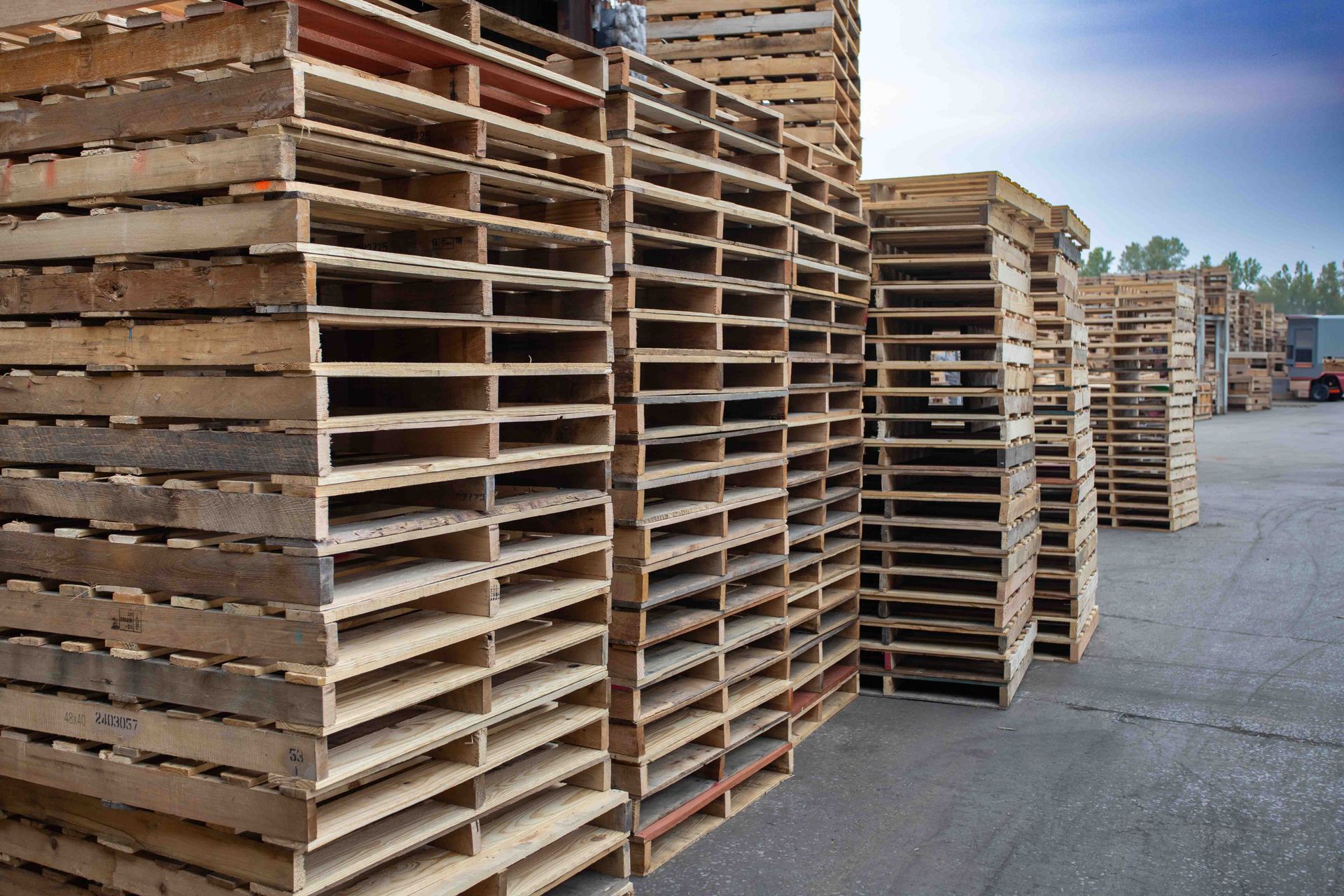How Pallet Recycling Can Help You Meet Your Corporate Sustainability Goals
In today's business world, sustainability is no longer just a buzzword—it's a necessity.
Companies across industries prioritize environmentally friendly practices to meet corporate sustainability goals, reduce waste, and enhance their brand image.
Pallet recycling is one often overlooked yet highly effective way to boost sustainability efforts.
By adopting pallet recycling practices, businesses can significantly reduce their environmental footprint while improving operational efficiency and cost savings.
The Role of Wooden Pallets in Logistics and Sustainability
Wooden pallets are the backbone of global supply chains and are used extensively in warehousing, shipping, and logistics.
However, with millions of pallets in circulation, the environmental impact of pallet disposal can be significant. Businesses discard large volumes of damaged or used pallets every year, contributing to deforestation and landfill waste.
Pallet recycling is a sustainable solution that allows businesses to minimize waste, conserve resources, and promote a circular economy.
Companies can extend their lifespans by repairing, reusing, or repurposing wooden pallets, significantly reducing the need for new raw materials.
How Pallet Recycling Supports Corporate Sustainability Goals
Reducing Waste and Landfill Impact
Many companies aim to achieve zero-waste goals or significantly reduce landfill contributions.
Recycling wooden pallets helps businesses avoid unnecessary waste by ensuring that pallets are repaired, refurbished, or broken down into reusable materials instead of being discarded in landfills.
This approach aligns with corporate waste-reduction initiatives and helps businesses lower disposal costs.
Lowering Carbon Footprint
Manufacturing new pallets requires fresh lumber, contributing to deforestation and increasing carbon emissions associated with logging and transportation.
Recycling pallets helps reduce the demand for virgin wood, ultimately lowering greenhouse gas emissions. By integrating pallet recycling into their sustainability plans, businesses can actively work towards reducing their carbon footprint and environmental impact.
Promoting a Circular Economy
A circular economy keeps resources in use for as long as possible, extracting maximum value before recycling or repurposing them. Pallet recycling embodies this concept by transforming old or damaged pallets into refurbished, reusable products.
Companies that embrace pallet recycling contribute to a more sustainable supply chain by extending the lifecycle of materials rather than relying on continuous production and disposal cycles.
Cost Savings and Resource Efficiency
Sustainability efforts are often associated with additional costs, but pallet recycling offers environmental and financial benefits.
Instead of purchasing brand-new pallets, businesses can refurbish and reuse existing ones, significantly lowering procurement expenses. Additionally, selling unwanted pallets to recycling companies can generate extra revenue while reducing disposal fees.
Enhancing Corporate Social Responsibility (CSR) and Brand Reputation
Consumers and stakeholders increasingly favor businesses that demonstrate a commitment to sustainability.
Implementing a pallet recycling program helps companies achieve sustainability goals and enhances their corporate social responsibility (CSR) profile.
By showcasing eco-friendly practices, businesses can attract environmentally conscious customers, strengthen partnerships, and differentiate themselves from competitors.

Practical Steps to Implement a Pallet Recycling Program
To fully leverage pallet recycling for sustainability, businesses should follow some key steps.
Conduct a Pallet Audit
Assess the number and condition of pallets in your supply chain. Identify reusable, repairable, and non-salvageable pallets to determine the best recycling approach.
Partner with a Pallet Recycling Company
Collaborate with a reliable pallet recycling service that can handle repairs, repurposing, and responsible disposal. Many pallet recyclers offer pickup services, making integrating recycling into daily operations easier.
Implement a Reuse and Repair Strategy
Train employees to inspect and segregate pallets based on usability. Encourage in-house repairs for minor damages and implement a process for sending broken pallets to a recycler.
Educate Employees and Suppliers
Sustainability efforts are most effective when all stakeholders are on board. Educate staff and supply chain partners on the benefits of pallet recycling and encourage their active participation in waste reduction initiatives.
Track and Measure Sustainability Impact
Use key performance indicators (KPIs) to track the effectiveness of your pallet recycling program. Metrics such as waste reduction, cost savings, and carbon footprint reduction can help businesses measure progress and adjust strategies accordingly.

Work With Global ICB Pallets
Pallet recycling is an easy yet impactful way for businesses to align with their corporate sustainability goals.
By reducing waste, lowering carbon emissions, promoting a circular economy, and improving cost efficiency, companies can enhance their environmental responsibility while benefiting their bottom line.
At Global ICB, we have over 35 years of experience selling, servicing, and recycling pallets of all materials, grades, and conditions. With competitive pricing, custom designs, and nationwide delivery, we can ensure that your pallet needs are met, optimized, and exceeded.
Contact us today for all your pallet needs!

